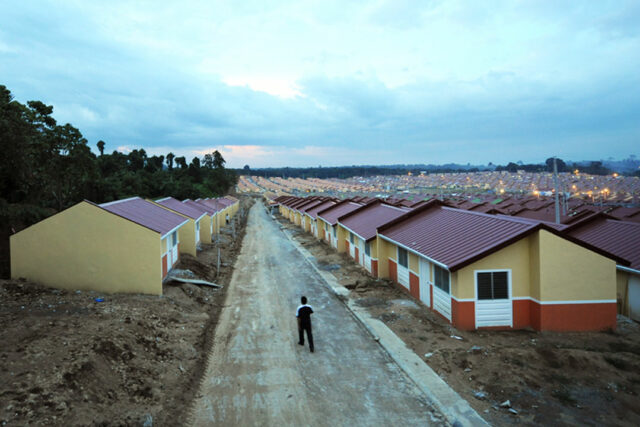Housing policies can’t keep up with evolving family trends in PHL
By Beatriz Marie D. Cruz, Reporter
THE PHILIPPINE government should reform its housing policies as more Filipinos live with extended families — a sign that traditional family structures are shifting, according to the Philippines Institute for Development Studies (PIDS).
About 29% of Filipino households are no longer the traditional nuclear type, as more relatives resort to cohabitation to share in housing and other costs, PIDS Supervising Research Specialist Tatum P. Ramos told a recent webinar.
“They have decided to join their relatives in a household to gain support in growing their own family or [to manage] living and housing expenses,” she said, based on a PIDS statement released on Wednesday.
A PIDS paper cited the significant link between wealth and the likelihood of living in extended households.
“An extended family setup offers a resource-sharing opportunity and provides support for working young female adults who may not necessarily have the same amount of time for household management activities as before,” PIDS said.
Rising housing prices, especially in Metro Manila and in key cities, have forced households to share living spaces with relatives, Michael L. Ricafort, chief economist at Rizal Commercial Banking Corp., said in a Viber message.
“[There’s also the] lack of mass transport or train systems that would allow more Filipinos to live farther from central business districts to nearby provinces where housing is cheaper,” he added.
“The low attainability of housing in the Philippines is resulting in lower household formation with the rise of extended and multi-family arrangements and nonfamily housing arrangements (living alone or living with nonrelatives),” Ms. Ramos and her co-authors Marife M. Ballesteros and Jenica A. Ancheta said in the study.
“Government efforts to address this issue through a market-driven strategy should be reviewed, and housing affordability issues have to be closely examined,” they added.
Housing prices in the Philippines rose 6.7% in the fourth quarter of 2024 from a year earlier, according to the Bangko Sentral ng Pilipinas.
Mary Racelis, who teaches anthropology at the University of the Philippines, said housing policies should go beyond abstract models to address the lived experiences of the bottom 60% of the population — those who are underserved and priced out of formal housing markets.
She cited the need to understand the poor’s economic conditions to help design sustainable and inclusive housing plans.
“We should recognize that the informal settlers are not the problem, they are the solution,” she told the webinar, adding that informal settlers are not mere passive aid recipients.
Despite the wide membership of housing funds like the Home Development Mutual Fund (Pag-IBIG), the uptake of government assistance for housing finance remains limited, said Kevin Godoy, chief development specialist at the Department of Economy, Planning, and Development.
“Only 4% have government assistance as a financing source… considering that Pag-IBIG had 16 million members in 2024,” he pointed out.
He cited the importance of transport infrastructure, noting that long commutes rather than urban congestion alone are a major barrier to homeownership and household formation.
Mr. Godoy also sought the creation of a national rental housing program.
“We’re the only country in Southeast Asia that does not have a national program on public rental,” he said, noting how local governments have been left to experiment with rental solutions on their own in the absence of a national framework.
The Philippines faces a housing deficit of 6.5 million units, which could rise to 22 million by 2040 if not addressed, according to the United Nations Human Settlements Program.













